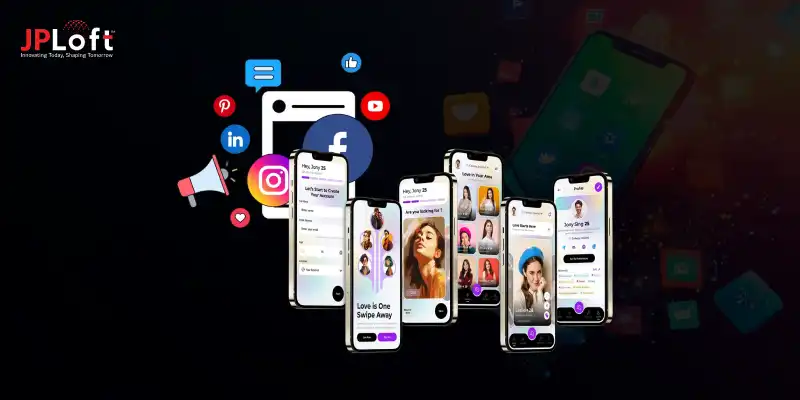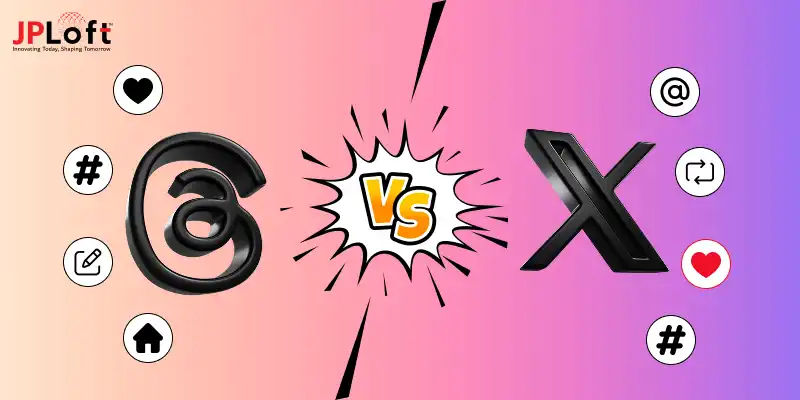In today’s digital era, knowledge-sharing platforms have become essential for learning, networking, and professional growth. Among them, Quora stands out as a powerful question-and-answer app that connects millions of users worldwide.
If you’re considering creating a similar platform, understanding the development process, features, and costs is crucial. From core functionalities to AI-powered recommendations, building an app like Quora involves strategic planning and thoughtful investment.
How much does it cost to create an app like Quora?
On average, the cost to create an app like Quora ranges between $60,000 and $150,000, depending on factors such as design complexity, technology stack, and AI integration.
In this detailed Quora like app development cost guide, we’ll explore everything from how the app works to a complete cost breakdown, helping you plan smartly and bring your vision of a Quora-like app to life in 2025.
Key Takeaways:
Developing a Quora-like app costs between $60,000 and $150,000, depending on design complexity, features, and AI integration.
Launch with an MVP focusing on core Q&A features, then scale gradually with AI and advanced functionalities to control costs.
AI and ML integrations like NLP search and smart recommendations enhance engagement, personalization, and platform quality.
Choosing the right UI/UX design, tech stack, and cloud infrastructure ensures scalability, performance, and budget efficiency.
Combine ads, subscriptions, and sponsored content to create multiple monetization streams for sustainable growth.
Partnering with JPLoft ensures expert guidance, cost efficiency, and a seamless journey from concept to launch.
An Overview of Quora
Quora has transformed the way people share and access knowledge online. Since its launch in 2009, it has become one of the best social media apps for learners, professionals, and enthusiasts, connecting millions through questions and answers.
Its user-friendly interface, combined with smart content discovery, keeps users engaged while promoting meaningful interactions.
If you’re planning to build a clone like Quora, it’s important to study its structure from topic-based content feeds to AI-driven suggestions, as these features drive engagement and retention.
The platform leverages social media app features like personalized feeds, topic following, upvotes, and notifications to ensure that users see the most relevant content.
These features, along with community moderation and AI-driven recommendations, are what make Quora so effective.
Understanding these elements is essential if you aim to build an app like Quora that attracts a loyal user base.
How Does a Quora App Work?
A Quora-like app works through a combination of user interaction, content curation, and intelligent recommendations. Here’s a breakdown of the core workflows that will help you build a clone like Quora efficiently:
A] User Registration and Profile Creation
Users sign up using email, phone, or social accounts. Profiles store personal information, interests, and activity history, helping the app deliver personalized content.
This step is critical if you plan to learn how to create a social media app, as seamless onboarding impacts retention.
B] Question Submission and Answer Posting
Users can post questions or answer existing ones. The system tags content by topic and expertise level to ensure the right audience sees it, enhancing engagement.
C] Content Feed and Discovery
The app provides a feed of questions and answers tailored to each user’s interests. AI algorithms analyze user behavior and previous interactions to prioritize relevant content. This process significantly affects your Quora like app development cost if personalization features are added.
D] Upvotes, Comments, and Follows
Social interactions, like upvotes and following topics or other users, increase visibility and credibility. This gamified engagement keeps users coming back regularly, an important factor when you develop a clone like Quora for high retention.
E] Notifications and Alerts
Users receive notifications about new answers, comments, or trending topics. Timely updates encourage activity and community participation.
F] Search and Recommendation Engine
Powerful NLP-based search ensures users find the right content quickly, a must-have for anyone aiming to make a clone like Quora that feels intelligent and user-driven.
AI-driven recommendation engines, on the other hand, suggest content that aligns with user interests, boosting satisfaction and time spent on the app.
G] Moderation and Quality Control
A combination of community reporting, admin oversight, and AI filters ensures high-quality content, reducing spam and inappropriate posts.
The seamless interplay of user profiles, content posting, discovery algorithms, social interactions, and moderation is what makes a Quora-like app effective.
Understanding this workflow is essential before you develop an app like Quora, as each feature contributes to engagement, retention, and scalability.
Features to Include in an App Like Quora
If you want to develop a successful Q&A platform, focusing on essential features is key. These features not only determine the user experience but also directly influence the cost to create an app like Quora.
Let’s explore the must-have elements that make your app intuitive, engaging, and scalable.
1. User Registration and Authentication
Allow users to sign up via email, phone, or third-party logins (Google, Facebook, etc.). Secure authentication ensures data safety and user trust, an ongoing trend in social media app development trends for 2025.
2. Personalized News Feed
Users should see content tailored to their interests. AI algorithms and ML models analyze past behavior to deliver a personalized experience, improving engagement and session time. However, this affects Quora like app development cost depending on data model complexity.
3. Question and Answer Posting
This is the app’s core function. Users can ask questions, provide answers, add images, or embed links. The structure and quality of this feature significantly affect the cost to make an app like Quora due to the required backend infrastructure.
4. Upvotes, Comments, and Sharing Options
Engagement features like upvotes, comments, and sharing not only drive participation but also improve content visibility. These interactive elements are what make platforms like Quora thrive.
5. AI-Powered Recommendations
Artificial Intelligence is now at the heart of modern app design. Integrating AI in social media
enhances personalization by suggesting questions, topics, and users based on preferences and behavior patterns. This is a hallmark of any modern Quora like app development guide.
6. Topic and User Following
Allow users to follow topics and creators they’re interested in. It helps build micro-communities and boosts the relevance of content displayed in feeds.
7. Advanced Search Filters
Users should easily find content with advanced filtering options by date, topic, popularity, or language. Adding NLP-powered search improves accuracy but can also impact the cost to build an app like Quora.
8. Notifications and Alerts
Timely updates about new answers, comments, or trending topics keep users engaged. Custom push notifications also help retain app activity over time.
9. Moderation and Reporting Tools
Community trust is built on quality control. Implement AI-assisted moderation tools to detect spam or inappropriate content early. Strong social media app security measures safeguard both user data and platform integrity.
10. Analytics and Admin Dashboard
Admins should have access to analytics dashboards for user insights, engagement metrics, and trend analysis essential for ongoing platform optimization.
These features form the foundation of any successful Quora-like platform. Incorporating AI, personalization, and user-centric design not only enhances experience but also affects the overall cost to develop an app like Quora. The smarter your feature set, the better your chances of building a thriving knowledge-sharing community.
What’s the Cost to Develop an App like Quora?
The cost to develop an app like Quora generally falls between $60,000 and $150,000, depending on the app’s complexity, design quality, and scalability goals.
A basic MVP version with essential Q&A features can cost around $25,000–$50,000, while a feature-rich, AI-enhanced Quora-style platform can go beyond $180,000. If you’re wondering again, how much does it cost to develop an app like Quora? This range provides a solid benchmark.
Much like analyzing the social media app development cost, the final estimate depends on UI/UX design, backend infrastructure, and integration of advanced technologies such as NLP and recommendation systems.
Developers can further optimize spending by choosing scalable frameworks, efficient architecture, and automation to reduce redundant efforts without compromising performance.
Estimated Development Cost Summary
|
App Type |
Estimated Cost (USD) |
Description |
|
Basic MVP |
$25,000 – $50,000 |
Core Q&A functionality with user profiles and voting |
|
Mid-Level App |
$60,000 – $100,000 |
Enhanced design, notifications, analytics |
|
AI-Powered App |
$120,000 – $180,000+ |
AI-driven personalization, NLP search, and smart moderation |
Factors Impacting the Complete Cost to Build an App like Quora
Building a Q&A platform like Quora is an ambitious project that demands careful financial planning. The complete cost to create an app like Quora depends on multiple factors, from design complexity to AI integration and team expertise. Let’s break down the major elements that shape your total development budget.
1. App Complexity and Features
The overall app complexity is the biggest cost driver. A basic platform with simple Q&A functionality, such as question posting, upvoting, and commenting, costs far less than one that supports AI-based recommendations, in-app messaging, moderation tools, and gamified user engagement. Each feature adds design and development hours, thereby increasing the Quora like app development cost.
2. App Design and User Experience (UI/UX)
A visually appealing and intuitive UI/UX design enhances user satisfaction and retention. Advanced design elements such as micro-interactions, dark mode, and adaptive layouts require more design time and higher skill levels. Top mobile app development companies emphasize accessible design and smooth user flow to ensure consistent performance across all devices, which naturally impacts the design cost when you develop a clone like Quora.
3. AI & Machine Learning Integration
Incorporating AI and ML features like smart answer suggestions, natural language search, and automated moderation can drastically influence your development budget.
If you aim to create an AI app like Quora, you’ll need to invest in NLP model training, algorithm optimization, and data processing infrastructure. These elements improve app intelligence and engagement but increase upfront development expenses.
4. Backend Architecture and Scalability
The backend of a Q&A platform must handle millions of concurrent users, questions, and responses. A robust, cloud-based architecture built with scalable frameworks like Node.js, Django, or Firebase ensures high performance. However, the more scalable and secure the backend, the greater the cost to create an app like Quora due to advanced database management and load balancing needs.
5. Platform Choice (Android, iOS, or Cross-Platform)
Choosing between native (Android/iOS) or cross-platform (Flutter/React Native) development directly affects costs. Native apps offer better performance but require separate development efforts for each platform. A single cross-platform app can reduce the overall cost to develop an app like Quora by 30–40% without compromising quality.
6. Development Team Location and Expertise
Where your team is based significantly impacts your project cost. Hiring a mobile app development company in USA ensures high-quality code, compliance, and advanced engineering standards, but at a higher hourly rate. Offshore development teams can lower the Quora like app development cost significantly, though they often require more communication and project management oversight.
7. Technology Stack
The mobile technology stack determines your app’s performance, scalability, and maintenance efficiency. Frameworks like React, Node.js, and Firebase are popular choices for building high-performance Q&A platforms.
Selecting the right combination of technologies early in the process helps balance cost, speed, and future flexibility. However, the more complex your tech stack, the more time and expertise it requires, especially when integrating AI-driven features and analytics.
8. Security and Data Protection
User trust is the backbone of any community-driven platform like Quora. Implementing strong security measures such as two-factor authentication, data encryption, and compliance with privacy regulations (like GDPR and CCPA) can increase development costs but is critical for user safety.
Regular vulnerability assessments and proactive monitoring further enhance system integrity, ensuring users can share knowledge without concerns about privacy or data misuse.
9. Maintenance and Post-Launch Updates
After launch, continuous maintenance ensures smooth functionality and user satisfaction. Regular bug fixes, feature upgrades, and performance monitoring can cost up to 20% of the initial development budget annually. Neglecting maintenance can quickly increase long-term expenses and reduce app stability.
10. Third-Party Integrations
Integrating third-party tools such as analytics dashboards, AI chatbots, or payment gateways enhances functionality but adds additional API and licensing costs. These integrations improve app usability but require ongoing monitoring and compatibility testing to maintain reliability.
Cost Breakdown Table: Estimated Development Costs for a Quora-like App
|
Cost Factor |
Estimated Cost (USD) |
Description |
|
App Design (UI/UX) |
$5,000 – $15,000 |
Wireframes, user journey, and responsive layouts |
|
Frontend & Backend Development |
$20,000 – $45,000 |
Core app logic, APIs, and data storage |
|
AI & ML Integration |
$8,000 – $20,000 |
NLP, recommendation engine, auto-tagging |
|
Testing & QA |
$3,000 – $8,000 |
Functional, usability, and security testing |
|
Deployment & Launch |
$1,000 – $3,000 |
App Store & Play Store submission |
|
Maintenance (Annual) |
$5,000 – $10,000 |
Updates, bug fixes, and performance monitoring |
|
Security & Compliance |
$2,000 – $5,000 |
Encryption, authentication, and data protection |
|
Third-Party Integrations |
$1,500 – $4,000 |
Payment gateways, analytics, and APIs |
Average total cost to build an app like Quora: $40,000 – $90,000+ (depending on AI capabilities, feature complexity, and development region).
How to Reduce the Overall Cost to Build an App like Quora?
Developing a platform like Quora can be expensive, but there are smart strategies to keep costs manageable without compromising on quality. Here’s how you can manage the Quora like app development cost efficiently:
1. Define a Clear MVP (Minimum Viable Product)
Start small. Launch your app with only the most essential features like Q&A posting, upvotes, and search, to validate your concept.
Once you gain traction, add AI, gamification, or other advanced functionalities in later updates. This approach helps you build a mobile app strategically while avoiding unnecessary early expenses.
2. Choose the Right Tech Stack
Selecting an efficient and scalable social media app tech stack reduces development time and long-term maintenance costs.
Frameworks like React Native or Flutter allow you to make a clone like Quora affordably by reducing 30–40% in development efforts.
3. Outsource to Skilled Developers
Partnering with an experienced on-demand app development company can be a game-changer in order to develop a clone like Quora efficiently.
Such companies provide flexible hiring models, dedicated teams, and cost-effective solutions that adapt to your project’s scope, perfect for startups aiming to launch faster and spend less.
4. Automate Testing & Deployment
Using social media app testing tools and CI/CD pipelines speeds up delivery while reducing QA and post-launch errors. Automation ensures fewer bugs, smoother updates, and lower long-term maintenance costs, allowing your Quora-like app to maintain top-tier reliability as it scales.
5. Optimize Cloud Infrastructure
Select cloud services with flexible pricing (like AWS, Google Cloud, or Azure). Pay-as-you-go models help you control operational expenses while scaling efficiently as your user base grows.
Pro Tip: Smart cost management doesn’t mean cutting corners, it means making strategic decisions that maintain quality and scalability while minimizing waste.
Key Monetization Models for Building an App like Quora
Creating a Quora-like app is not just about user engagement, it’s also about building a sustainable revenue model. Whether you build a clone like Quora or make a clone like Quora with advanced AI features, monetization is key. Here are the key monetization strategies to consider:
► Advertising Revenue
-
Display ads are the most straightforward way to monetize a Q&A platform. You can integrate banner ads, native ads, or sponsored posts targeted based on user interests.
-
Learning how social media apps make money through ads can help you identify high-revenue opportunities while keeping the user experience smooth.
► Subscription Models
-
Premium subscriptions unlock exclusive content, advanced search features, ad-free experience, or early access to trending topics.
-
Users who value expert insights are more likely to pay for enhanced features, providing a recurring revenue stream.
► Sponsored Content and Partnerships
-
Collaborate with brands, educational platforms, or influencers to feature sponsored questions or answers.
-
Sponsored content ensures monetization while keeping users engaged with relevant topics.
► In-App Purchases
-
Offer users the ability to buy virtual gifts, badges, or unlock premium features for questions and answers.
-
In-app purchases are especially effective in gamifying engagement and rewarding content creators.
► Data Analytics and Market Insights
-
Aggregated and anonymized user behavior data can be offered to research firms or brands for insights.
-
Ethical and privacy-compliant data monetization is becoming a significant revenue source for Q&A platforms.
► Online Courses and Knowledge Partnerships
-
Collaborate with experts to offer paid courses or webinars directly through the app.
-
This creates a dual value proposition: users gain learning opportunities, and your platform earns revenue.
Pro Tip: Before you dive into monetization, it’s essential to understand how to start a social media business. Choose models aligned with your audience’s expectations to ensure long-term success.
Partner With JPLoft and Build Your Quora-Like App
Building an intelligent, scalable, and user-driven Q&A platform like Quora requires the right blend of expertise and innovation. At JPLoft, we help you build a clone like Quora using the latest technologies and frameworks.
Whether you’re planning to launch a niche Q&A app or a full-scale social media network, our team ensures a smooth development journey from ideation to launch and beyond.
Partner with a trusted social media app development company like JPLoft to turn your concept into a revenue-generating digital product that engages and inspires millions.
Conclusion
Building a Quora-like app is an exciting opportunity to enter the world of knowledge sharing and online communities. From defining features to optimizing the budget, every step requires strategic planning and the right technical expertise.
If you’ve ever wondered what’s the cost to create an app like Quora, it ultimately depends on your app’s complexity, design, and feature set. By partnering with experienced developers and leveraging modern technologies, you can efficiently manage the cost to develop an app like Quora while ensuring top-tier performance and user engagement.
Your vision deserves a platform that informs, connects, and grows, just like Quora.
FAQs
The cost estimate to build an app like Quora typically ranges from $25,000 to $180,000+ depending on the app’s complexity, features, platform choice, and design quality. Costs can rise further if you include AI-driven recommendation engines, advanced moderation tools, or custom UI/UX design.
The total cost to make an app like Quora depends on several elements: user authentication, question-answers module, upvote/downvote system, AI-based content suggestions, moderation tools, and scalable backend architecture. Each feature adds layers of design and development effort.
Building a Quora-like app generally takes 4 to 9 months, depending on the app’s size and feature set. MVP versions take less time, while full-fledged versions with analytics, AI, and gamification can take longer.
Yes. Incorporating AI can enhance personalization, automate moderation, and improve user experience. However, doing so can slightly increase the cost to develop an app like Quora due to higher data processing and model integration needs.
If you aim to include premium functionalities like AI-driven insights, push notifications, video Q&As, and gamification, the complete cost to build an app like Quora could exceed $250,000. For startups, beginning with an MVP helps validate the concept before scaling further.













Share this blog